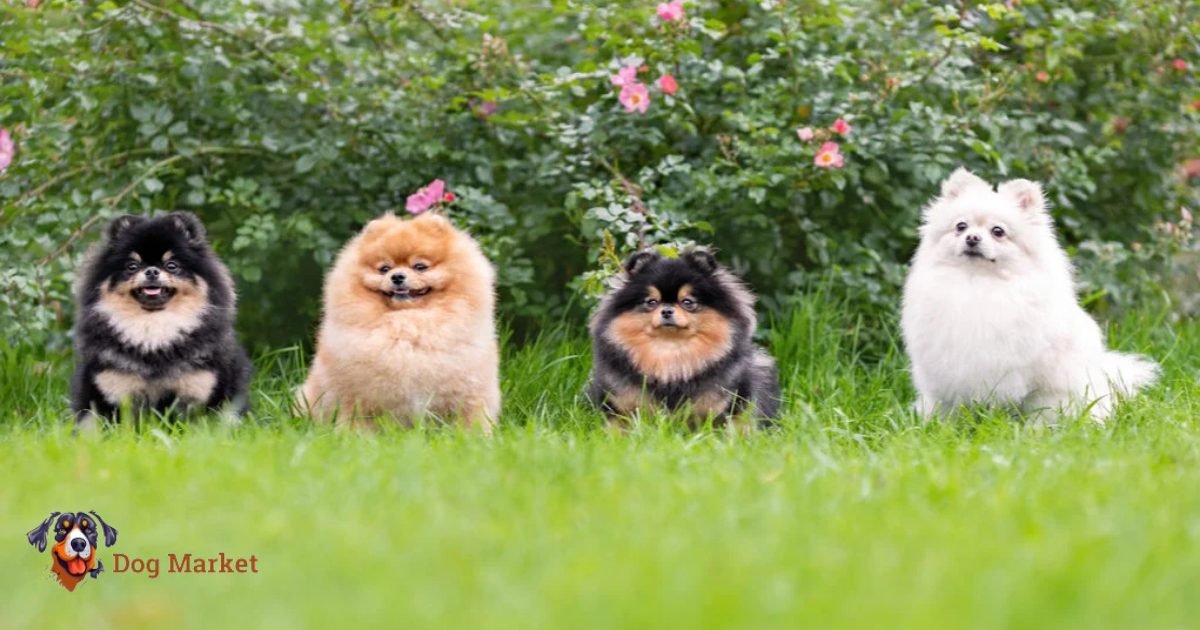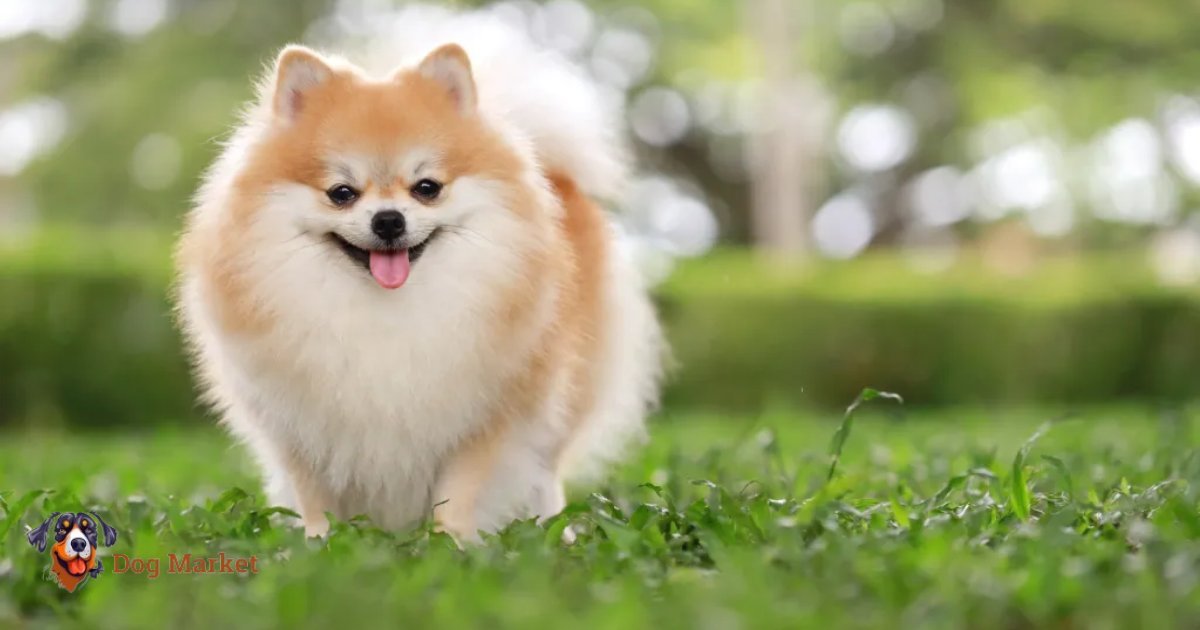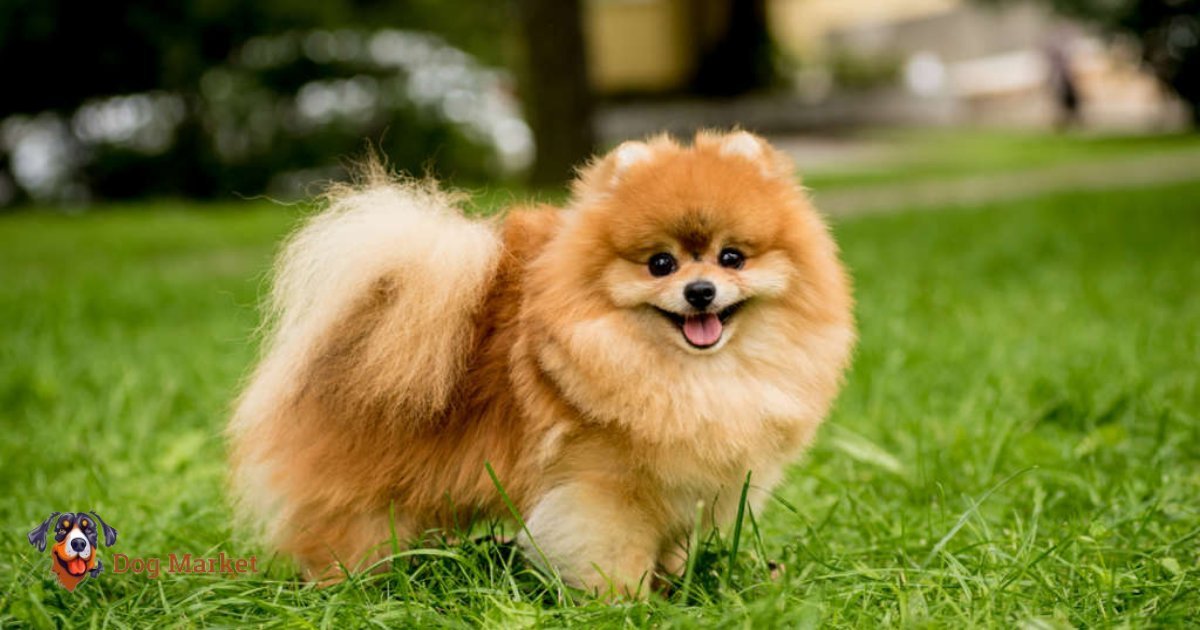Pomeranian dogs are undoubtedly one of the most popular and beloved small dog breeds around the world. With their fluffy coats, perky ears, and spirited personalities, Pomeranians capture the hearts of dog lovers everywhere.
Whether you’re considering adding a Pomeranian to your family or you’re already a proud Pom parent, this comprehensive guide will provide you with everything you need to know about Pomeranian dog, Pomeranian dog price,care tips and understanding these delightful little dogs.
Pomeranian Dog Price in IndiaThe price of a Pomeranian dog in India can vary widely depending on various factors such as location, breeder reputation, lineage, age, and quality. On average, the cost of a Pomeranian puppy from a reputable breeder in India can range from ₹10,000 to ₹50,000 or even higher for show-quality or rare color variations. |
Factors Affecting the Price of Pomeranian Dog
Breeder Reputation: The reputation and credibility of the breeder play a significant role in determining the price of a Pomeranian dog. Reputable breeders who adhere to ethical breeding practices, health screening, and proper care of the dogs typically charge higher prices for their puppies.
Lineage and Pedigree: Pomeranians with champion bloodlines or pedigrees from renowned kennels often command higher prices due to their superior lineage and potential for show or breeding purposes.
Quality and Conformation: Puppies that meet the breed standards in terms of physical appearance, size, coat quality, and overall conformation are considered higher in quality and are priced accordingly.
Color and Coat Quality: Pomeranians come in various colors and coat types, including standard colors like orange, cream, black, and white, as well as rare colors like blue, merle, or parti-color. Rare color variations or puppies with exceptional coat quality may be priced higher.
Age and Training: Puppies that have undergone basic training, socialization, and are slightly older may be priced higher than very young puppies. Additionally, adult Pomeranians that are already trained or proven in certain activities like agility or obedience may have higher price tags.
Location and Demand: The price of Pomeranian dogs can vary based on the location and demand in specific regions of India. Dogs from metropolitan areas or regions with high demand for Pomeranians may be priced higher than in rural areas where the breed is less popular.
| Locations | Price Range |
| Pomeranian price in Pune | Rs.14,500 – Rs.40,000 |
| Pomeranian price guwahati |
Rs.12,000 – Rs.60,000 |
| Pomeranian price in Delhi | Rs.12,000 – Rs.60,000 |
| Pomeranian price in Kolkata | Rs.10,000 – Rs.65,000 |
| Pomeranian price in Gujarat | Rs.10,000 – Rs.50,000 |
| Pomeranian price in Patna | Rs.10,000 – Rs.60,000 |
| Pomeranian price in Haryana | Rs.10,000 – Rs.65,000 |
| Pomeranian price in Punjab | Rs.11,000 – Rs.65,000 |
| Pomeranian price in Bangalore | Rs.12,000 – Rs.65,000 |
Overview of Pomeranian dog
Origins and History
The Pomeranian breed originated in the Pomerania region of Europe, which is now part of Poland and Germany. Initially, Pomeranians were much larger sled dogs used for herding and pulling carts. However, over time, they were selectively bred to become the smaller, companion-sized dogs we know today.
Queen Victoria of England played a significant role in popularizing the breed, as she was an avid enthusiast of Pomeranians and owned several.
This royal endorsement contributed to the breed’s rise in popularity among the aristocracy and eventually the general public.
Today, Pomeranians are cherished as beloved pets and companions worldwide, thanks to their charming personalities and adorable appearance.
Appearance
Pomeranians are small, compact dogs with a distinctive foxy face and fluffy double coat. They have a fox-like expression, small ears that stand erect, and a plumed tail that arches over their back.
Their coat can come in various colors, including orange, black, white, cream, blue, sable, and more. Pomeranians have a sturdy build with a well-proportioned body, and their confident, lively gait reflects their spirited nature. Despite their small size, Pomeranians exude elegance and grace in their appearance.
Temperament and Activities
Pomeranians are known for their bold, vivacious personalities and boundless energy. Despite their diminutive size, they possess a fearless and confident demeanor, often unaware of their small stature.
They are highly intelligent and eager to please, making them relatively easy to train. Pomeranians thrive on human companionship and enjoy being the center of attention.
While they make excellent indoor companions, they also love outdoor activities such as walks, playtime, and exploring new environments.
Additionally, Pomeranians excel in various canine sports and activities, including agility, obedience, and even therapy work, thanks to their adaptable nature and willingness to learn.
Personality and Behavior
Pomeranians are affectionate, loyal, and highly social dogs that form strong bonds with their owners. They are known for their extroverted personalities and love to be involved in family activities. Pomeranians are often described as “big dogs in small bodies” due to their confident and assertive demeanor.
While they can be independent and occasionally stubborn, they are generally eager to please and respond well to positive reinforcement training methods. Pomeranians are also known for their vocal nature and may bark to alert their owners to potential threats or simply to express excitement.
With proper socialization and training, Pomeranians make wonderful family pets and companions, bringing joy and laughter to their households with their playful antics and loving nature.
Types of Pomeranian Dog Breeds

Standard Pomeranian: The standard Pomeranian is the most common type, characterized by its small size, fluffy double coat, and distinctive foxy face. These dogs typically weigh between 3 to 7 pounds and come in various colors, including orange, black, white, cream, blue, and sable.
Toy Pomeranian: Toy Pomeranians are even smaller than the standard variety, weighing less than 3 pounds. They have all the same characteristics as standard Pomeranians but are bred to be even more petite, making them popular choices for individuals looking for ultra-compact companions.
Teacup Pomeranian: Teacup Pomeranians are the tiniest members of the breed, often weighing less than 2.5 pounds. They are bred to be exceptionally small and are typically the result of breeding runts or selecting for dwarfism. Due to their delicate size, teacup Pomeranians require extra care and attention to ensure their health and well-being.
Health Issues of Pomeranian Dogs
Luxating Patella: Luxating patella, or “slipped kneecap,” is a common orthopedic condition in Pomeranians where the kneecap moves out of its normal position, causing lameness and discomfort.
Tracheal Collapse: Pomeranians are prone to tracheal collapse, a condition where the trachea becomes weakened or flattened, leading to coughing, wheezing, and difficulty breathing.
Dental Problems: Pomeranians are susceptible to dental issues such as tooth decay, gum disease, and tooth loss due to their small mouths and overcrowded teeth.
Hypoglycemia: Pomeranian puppies, especially toy and teacup varieties, are at risk of hypoglycemia or low blood sugar, which can lead to weakness, seizures, and even death if left untreated.
Heart Problems: Pomeranians may develop heart conditions such as mitral valve disease or patent ductus arteriosus, which can lead to heart failure if not managed properly.
Eye Conditions: Pomeranians are prone to various eye problems, including cataracts, progressive retinal atrophy (PRA), and dry eye syndrome, which can affect their vision and overall quality of life. Regular veterinary check-ups and proper preventive care are essential to help manage and mitigate these health issues in Pomeranian dogs.
Maintenance Cost of Pomeranian Dog
Veterinary Expenses: Regular veterinary check-ups, vaccinations, and preventive care are essential for maintaining your Pomeranian’s health. Budget for annual exams, vaccinations, flea and tick prevention, and potential emergency veterinary expenses.

Grooming Supplies: Pomeranians have a thick double coat that requires regular grooming to prevent matting and tangles. Budget for grooming supplies such as brushes, combs, shampoo, and conditioner, as well as occasional professional grooming services.
Quality Food: Pomeranians thrive on a high-quality diet that meets their nutritional needs. Budget for premium dog food formulated for small breeds, as well as treats and supplements if necessary.
Training and Socialization: Investing in obedience training classes or private sessions can help ensure your Pomeranian is well-behaved and socialized. Additionally, consider the cost of toys, treats, and training aids to facilitate learning and mental stimulation.
Accessories and Supplies: Pomeranians may require accessories such as collars, harnesses, leashes, beds, crates, and toys. Budget for these essential items to provide a comfortable and enriching environment for your dog.
Care Tips for Pomeranian Dog
Socialization: Start socializing your Pomeranian early to help them become well-adjusted and confident around people, other animals, and various environments. Take them to puppy classes, expose them to different sights and sounds, and introduce them to new experiences gradually.
Grooming: Pomeranians require regular brushing to prevent mats and tangles in their dense double coat. Aim to brush their coat at least a few times a week, and consider professional grooming every few months to maintain their coat and hygiene.
Diet and Nutrition: Feed your Pomeranian a balanced diet formulated for small breeds, providing appropriate portions to maintain a healthy weight. Avoid overfeeding and offer high-quality food with essential nutrients for optimal health.
Training and Exercise Requirements: Pomeranians are intelligent and active dogs that benefit from mental stimulation and regular exercise. Engage them in interactive play, short walks, and training sessions to keep them mentally and physically stimulated. Positive reinforcement training methods work best for Pomeranians, as they respond well to praise and rewards.
Lifespan of Pomeranian Dog
The average lifespan of a Pomeranian dog typically ranges between 12 to 16 years. However, with proper care, some Pomeranians may live even longer. Factors such as genetics, diet, exercise, veterinary care, and overall lifestyle can influence the lifespan of individual dogs.
Facts about Pomeranian Dog
1. Miniature Husky Ancestry: Pomeranians share a common ancestry with larger sled dogs, including the Siberian Husky and the Alaskan Malamute. Despite their diminutive size, Pomeranians retain some of the traits and characteristics of their larger ancestors.
2. Royal Endorsement: Pomeranians gained popularity in the 18th century when Queen Victoria of England became an avid enthusiast of the breed. Queen Victoria’s fondness for Pomeranians led to the breed’s rise in popularity among European aristocracy and eventually the general public.
3. Fluffy Double Coat: Pomeranians have a dense double coat consisting of a soft, fluffy undercoat and a longer, coarser outer coat. This luxurious coat requires regular grooming to prevent mats and tangles and may come in various colors, including orange, black, white, cream, blue, and sable.
4. Small but Mighty: Despite their small size, Pomeranians have big personalities. They are bold, confident, and spirited dogs known for their extroverted nature and lively demeanor. Pomeranians are often described as “big dogs in small bodies” due to their fearless attitude and assertive behavior.
5. Adaptable Companions: Pomeranians make excellent companions for various living situations, including apartments, suburban homes, and rural settings. They adapt well to indoor living but also enjoy outdoor activities such as walks, playtime, and exploring new environments. Pomeranians thrive on human companionship and love being the center of attention.
6. Versatile in Activities: Despite their small stature, Pomeranians excel in various canine sports and activities, including agility, obedience, and even therapy work. Their intelligence, agility, and eagerness to please make them adaptable and versatile participants in these activities.
Pros of Owning a Pomeranian DogOwning a Pomeranian dog comes with numerous benefits. Firstly, Pomeranians are incredibly affectionate and loyal companions, forming strong bonds with their owners and providing constant companionship. Their small size makes them suitable for apartment living and easy to transport. Additionally, Pomeranians are intelligent and trainable, excelling in obedience training and agility activities. Their playful and lively nature brings joy and laughter to households, making them ideal family pets. Furthermore, Pomeranians have a long lifespan, allowing for many years of cherished memories and shared experiences with their owners. |
Cons of Owning a Pomeranian DogHowever, owning a Pomeranian also has its challenges. Pomeranians are prone to excessive barking, which can be disruptive in certain environments. Their small size and delicate frames make them susceptible to injury, requiring careful handling and supervision, especially around young children and larger pets. Additionally, Pomeranians have a high grooming requirement due to their dense double coat, necessitating regular brushing and professional grooming to prevent matting and tangles. They can also be prone to health issues such as dental problems, luxating patella, and tracheal collapse, requiring vigilant monitoring and veterinary care. |
Frequently Asked Questions
What is the average size of a Pomeranian dog?
Pomeranians are small dogs, typically weighing between 3 to 7 pounds and standing around 6 to 7 inches tall at the shoulder.
Do Pomeranians shed a lot?
Yes, Pomeranians have a dense double coat that sheds moderately year-round. Regular brushing can help manage shedding and prevent mats and tangles in their fur.
Are Pomeranians good with children?
Pomeranians can be good with children if they are properly socialized and trained from a young age. However, due to their small size, they may be more suitable for families with older children who understand how to interact gently with small dogs.
How much exercise do Pomeranians need?
Pomeranians are active dogs that enjoy short walks, playtime, and indoor activities. They require regular exercise to maintain their physical and mental well-being but do not need extensive exercise like larger breeds.
Are Pomeranians easy to train?
Pomeranians are intelligent and trainable dogs, but they can also be independent and stubborn at times. Consistent training using positive reinforcement techniques is key to successfully training a Pomeranian.
Do Pomeranians bark a lot?
Pomeranians have a tendency to bark and can be vocal dogs, especially if they are not properly trained and socialized. Early training and positive reinforcement can help manage excessive barking behavior.
Recommended
1. Great Dane Price in india 2024 | dog price
2. Chippiparai Dog Price in India 2024
3.Indian Pariah Dog Price in India 2024 | Desi Dog
4. Siberian Husky Price in India 2024 | Siberian Husky Price in Delhi
